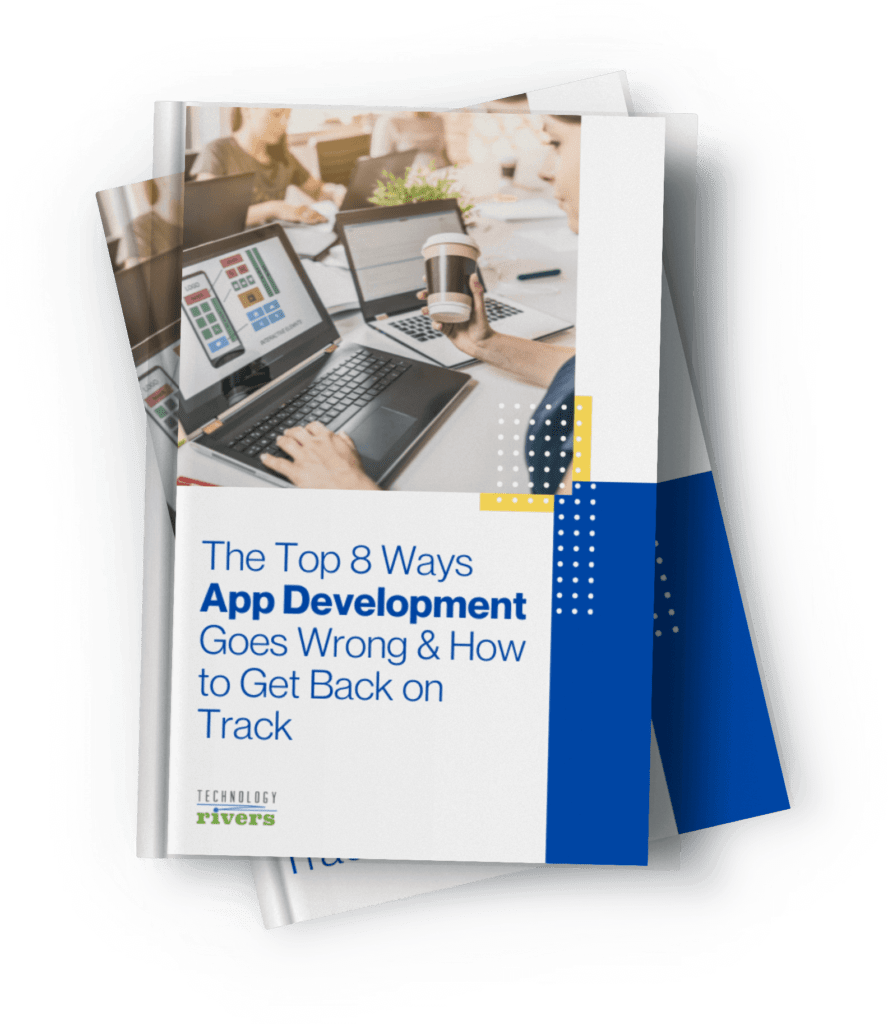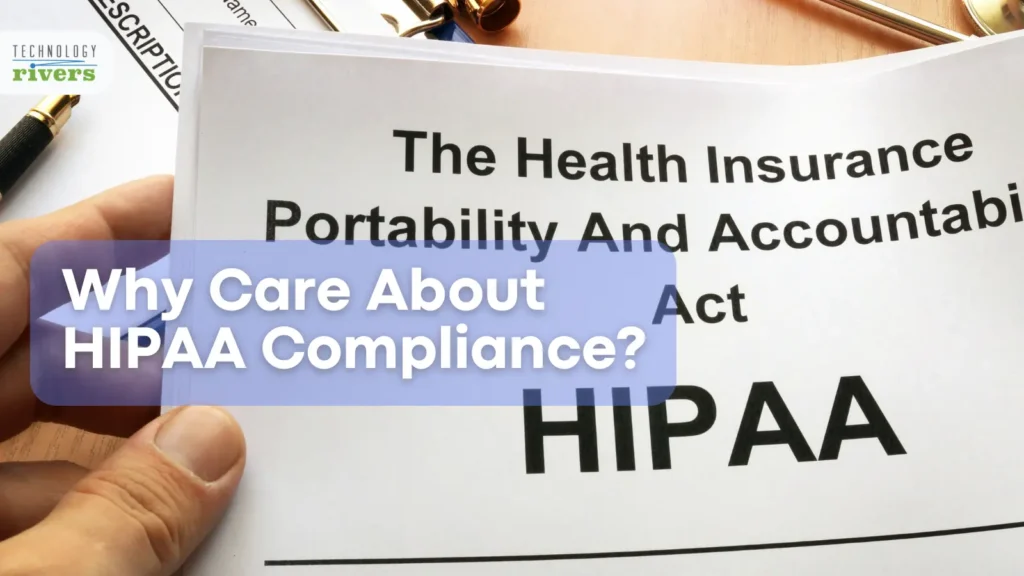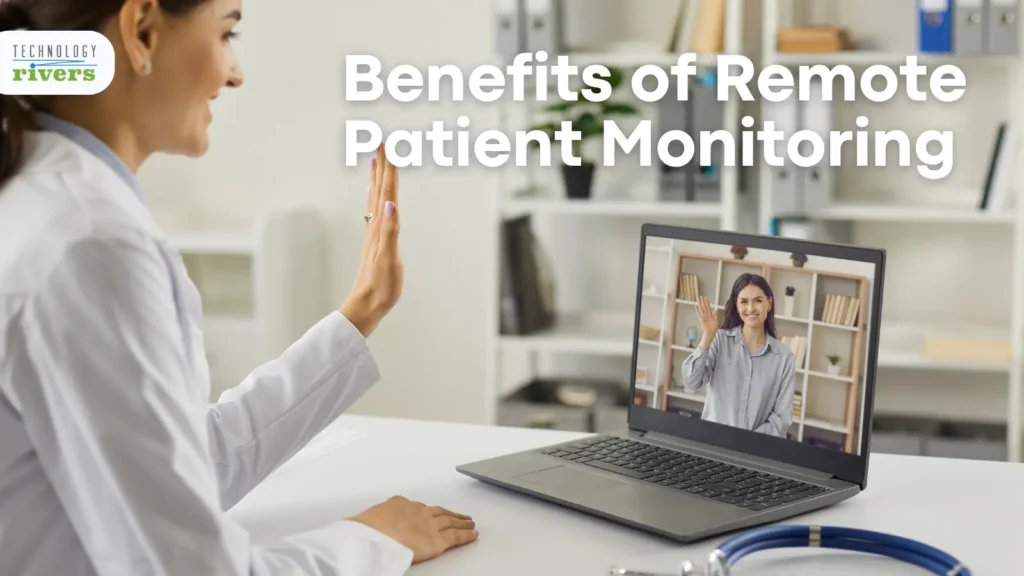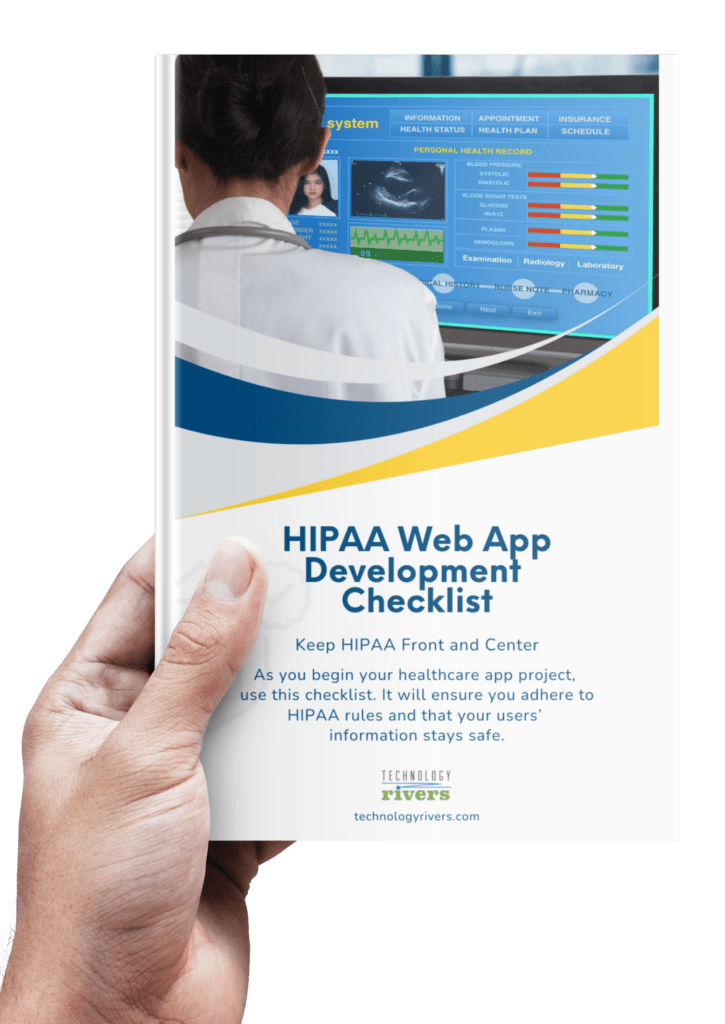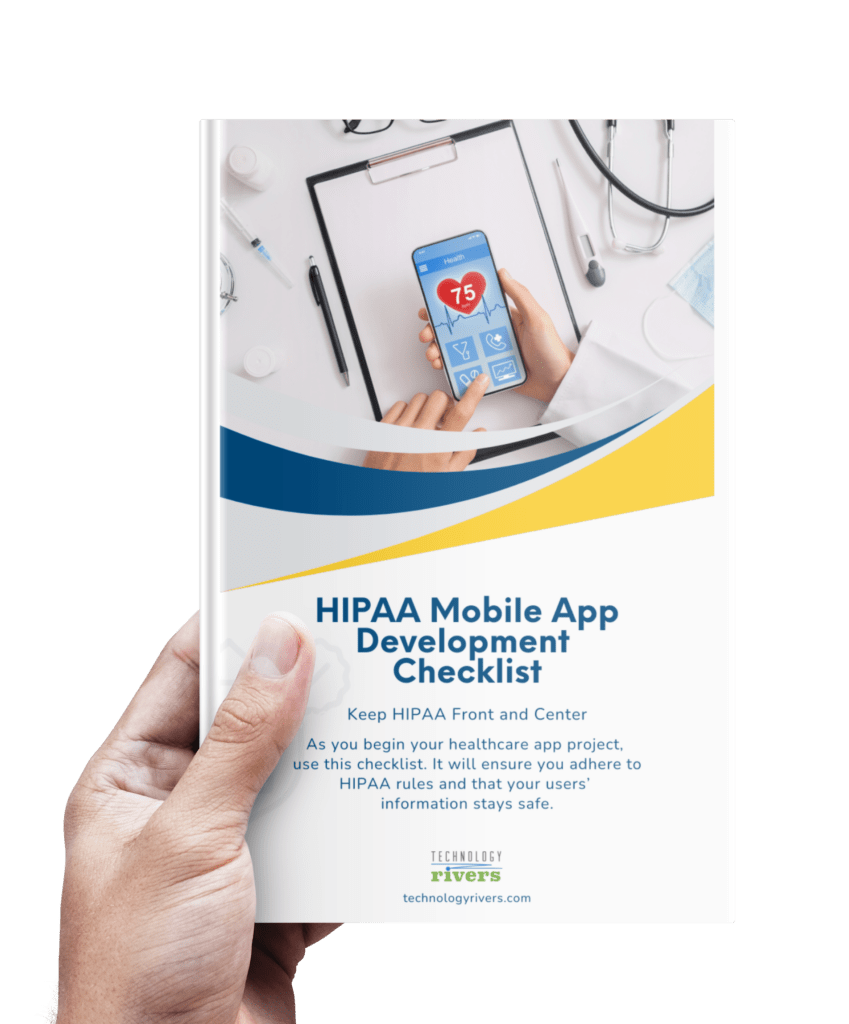Picture this: You’re a first-time app developer, ready to create cutting-edge technology that you think could revolutionize the healthcare industry.
You’ve poured your heart and soul into creating an app that could potentially save lives, but there’s one major hurdle: HIPAA compliance.
It’s a tricky path to navigate, and the stakes are high. After all, the consequences of violating HIPAA rules could result in a minimum fine of $50,000. But fear not! With the right approach, it’s possible to create a HIPAA-compliant app that keeps patients’ information safe and secure.
So buckle up and get ready to dive into the world of healthcare app development, where digital maturity is a must-have and following HIPAA guidelines is crucial for success.
So… what does HIPAA stand for?
HIPAA is an acronym that stands for Health Insurance Portability and Accountability Act. It’s a set of regulations that were put into place by the US government back in 1996. This act was created to keep your personal health information (PHI) private and confidential.
What does HIPAA require healthcare providers, insurers, and app developers to do?
They have to put measures in place to protect your PHI from unauthorized access, theft, or misuse. Think of it like a security guard protecting your private health information!
These measures can include things like making sure only authorized people can access your information, storing your information in a secure way, and regularly assessing any risks.
Do all healthcare apps need to follow HIPAA rules?
The short answer is no, but it depends on what kind of information they handle. It’s important to understand your app’s use cases and whether it will store or transmit personal health information (PHI).
HIPAA compliance is essential when PHI is involved, so if your app is collecting or sharing this kind of information, it must comply with HIPAA regulations. For example, a mobile app that scans patient information and sends it to healthcare providers must be HIPAA-compliant.
Here are a few examples of healthcare apps that should be HIPAA-compliant:
- Telemedicine (doctor-on-demand) apps – it’s no surprise that telemedicine and HIPAA compliance go hand-in-hand. Any telemedicine app that handles personal health information (PHI) needs to have top-notch security measures in place to prevent data leaks
- EHR apps – mobile EHR apps allow healthcare professionals to take digital notes instead of using paper-based ones. By following HIPAA rules, EHR apps can guarantee patient privacy, unification, and accessibility.
- Condition-based apps – medical apps that collect and store protected health information about a patient’s physical or mental condition and healthcare services, including past, present, or future payments for care, must be HIPAA compliant too.
But did you know that most mobile apps aren’t required to follow HIPAA regulations? That’s because many of them are designed for personal use and don’t collect any information that could identify a patient.
That means workout programs, diet apps, and IoT fitness apps do not fall under the umbrella of HIPAA-compliant apps. These apps typically store data like calories burned, weight loss progress, or daily food and activity logs, which isn’t considered personal health information under HIPAA rules.
Here are 7 steps to make sure your mobile app meets HIPAA regulations
If you’re creating a mobile app related to healthcare, it’s crucial to make sure that your app meets HIPAA regulations. While this may seem daunting and costly, there are services available to help you make your app HIPAA-compliant quickly and efficiently.
To meet HIPAA regulations, you must take steps to safeguard people’s sensitive medical information. This includes controlling who has access to the data, securing servers and devices, and implementing technical measures to protect the data from any unauthorized access or theft.
Step 1: Control Who Can Access Information
If your app stores people’s medical info, it’s important to limit who can see or change that info. HIPAA has privacy rules that say people should only see what they need to do their job. So make sure you’re only giving access to the people who really need it!
Some documents can help you better understand HIPAA regulations and ensure you’re assessing risks properly. We’ve put together 7 steps to help you make sure your mobile app is HIPAA-compliant and following all the rules.
Step 2: Make Sure Only Authorized People Can Get In
Once you’ve given people access to your app, you need to know exactly who is getting in. HIPAA has rules about how to authenticate people, and there are a few ways to do it:
- Biometrics, like fingerprints or facial recognition
- Passwords
- Physical methods, like using a key or a card
- Personal Identification Numbers (PINs)
Make sure you’re using one of these methods to make sure only the right people are getting access to the medical info in your app.
Step 3: Keep Information Safe While It’s Being Sent
It’s important to make sure any medical info being sent over your app’s network is encrypted, so no one else can read it. One way to do this is by using the HTTPS protocol, which encrypts the info using SSL/TLS.
Basically, it turns the medical info into a bunch of jumbled-up characters that only the right people can read with the right decryption keys.
Make sure you’re using HTTPS for any pages that contain medical info, like sign-up screens and authorization cookies. That way, you’re doing everything you can to keep people’s info safe!
Step 4: Get Rid of Medical Info the Right Way
When you don’t need medical info anymore, you have to get rid of it. That means making sure there are no extra copies of it anywhere, even in backups.
It’s really important to dispose of this info properly, so it can’t be used or seen by anyone who shouldn’t have it.
Make sure you’re taking preventative measures to limit who can see the medical info and that you’re following all the rules about how to dispose of it. That way, you can be sure you’re doing everything you can to keep the info safe!
Step 5: Keep Medical Info Safe and Sound
Even if your app’s storage system is really reliable, there’s always a chance something could go wrong and you could lose medical info.
That’s why it’s super important to create a backup of all the medical info. This means making a copy of it and saving it somewhere else, like on a different server in a different data center.
Having a backup means that even if something bad happens, you’ll still have all the info you need. So make sure you’re backing up all the medical info regularly to keep it safe and sound!
Step 6: Keep Track of Who’s Doing What
Doing an IT audit is a really important step in making sure your app is HIPAA compliant. Not having proper audit controls could result in some pretty big fines.
Basically, you need to keep track of everything that happens with medical info in your app. This means recording every time someone accesses the info or makes changes to it. You should know exactly what’s going on with sensitive information in your HIPAA mobile app.
There are different ways to do this, like using software or hardware, but one easy option is just to keep a record of all the interactions with the patient info in a database or log file. This way you can always look back and see who did what with the medical info.
Step 7: Protect the Info in Your HIPAA-Compliant App by Applying Encryption
Encryption is like a secret code that only you and the people you authorize can read. It makes sure that the data transmitted over a network is secure and that nobody can tamper with it. Encryption is an important part of HIPAA requirements for mobile apps and web applications.
There are different encryption methods based on the science of message security, and they are used in all types of data, not just personal communication. Without encryption, hackers can easily access the information stored on your app.
When you send or copy files online, there’s a chance that confidential company information can be leaked. This can happen if someone tries to access it without permission, or if someone makes a mistake.
But if you use encryption, it can help protect your data from cybercriminals. Encryption scrambles the information in a way that makes it very difficult for unauthorized people to read or use it, which helps keep your data secure.
How We Can Help
Non-compliance may lead to hefty fines and potential fraud. As healthcare app creators, we must follow HIPAA guidelines and protect our patient’s information, and we must do our part in creating a safe and secure digital healthcare environment. If you need assistance in making your app HIPAA-compliant, please reach out to schedule a complimentary consultation. Let’s keep our patient’s data safe and secure while we take advantage of all the benefits of creating a healthcare app.


